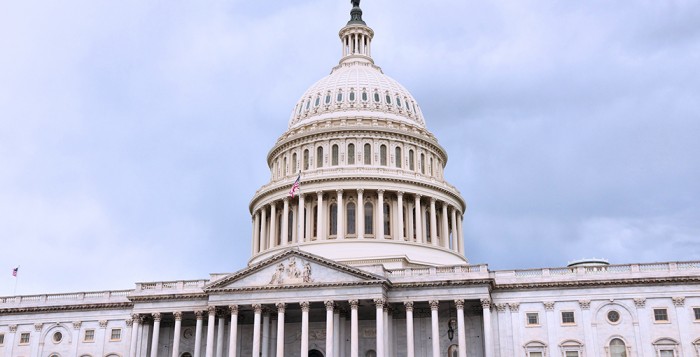Opportunity for PPE Through PA’s B2B Interchange Directory
2020 Federal Grants Technical Assistance Webinar
Mark your calendars and plan to join us for a FREE Federal Grants Technical Assistance Webinar on
May 21 from 10:00 am – 11:15 am. The U.S. Department of Health and Human Services (HHS),
Health Resources and Services Administration (HRSA), Region III Office, will present key steps
and resources for seeking federal grants. This session is recommended for community partners
interested in learning more about federal grant support for health and human service programs.
Individuals at all levels of experiences, from those considering a first grant submission to those with prior grant writing experience, are welcome.
Topics that will be covered are:
– Overview of HHS/HRSA national and regional offices
– Identifying federal grant opportunities
– Navigating the federal grant application process
– Accessing technical assistance resources
– Overview of fiscal grant requirements
Presenters:
Rhonda Jackson, MSW
Public Health Analyst
HRSA/Office of Regional Operations
Region III – Philadelphia Regional Office
Stephanie Sowalsky, CPA
Special Assistant to the Director of Division of Financial Integrity
HRSA/Office of Financial Assistance and Management (OFAM)
In order to receive the link to the webinar, you will need to register here. The link will be sent out a few
days prior to the webinar.
Joint Hearing on Wolf Administration’s Response to COVID-19: Watch Live
The Pennsylvania Senate will be holding a Joint Hearing on Wolf Administration’s Response to COVID-19 on Thursday, April 23 at 10:00 am – Watch Live
Released: Apr 22, 2020
Thursday, April 23 at 10 am
Senate Chamber and Virtual Participation
JOINT HEARING
Senate Community, Economic & Recreational Development Committee
AND
Senate Veterans Affairs & Emergency Preparedness Committee
10:00 Opening Remarks
Panel #1
- Gene Barr, President and CEO, Pennsylvania Chamber of Business and Industry
- Gordon Denlinger, State Director, NFIB Pennsylvania
- Jon O’Brien, Executive Director, General Contractors Association of Pennsylvania
- Bill Festa, President, Pennsylvania Association of Realtors
- Matt Stuckey, President, Stuckey Automotive
- Heather Miller, CEO, School Express, Inc.
11:00 Panel #2
- Rachel Levine, Secretary, Pennsylvania Department of Health (DOH)
- Dennis Davin, Secretary, Pennsylvania Department of Community & Economic Development (DCED)
- David (Randy) Padfield, Director, Pennsylvania Emergency Management Agency (PEMA)
1:00 Adjournment
New COVID-19 Healthcare Workforce Toolkit Released
The Centers for Medicare and Medicaid Services (CMS) and the Assistant Secretary of Preparedness and Response (ASPR) released a new COVID-19 Healthcare Workforce toolkit. The toolkit includes a variety of resources and tools for decision-makers managing health care challenges associated with the COVID-19 pandemic. The toolkit builds on the steps that CMS has taken to ensure health care facilities are fully staffed and equipped to treat COVID-19 patients as efficiently as possible. It also provides up-to-date best practices so that state and local health care decision makers have a resource to know what’s been implemented in the field and to find out how it’s working. The toolkit includes an assistance center, information exchange of case studies, and additional peer-to-peer communications.
Disability Rights of PA Seeking Public Comment
Monday, April 20, 2020, Disability Rights of Pennsylvania (DRP) started its 45-day public comment period for fiscal year 2021 annual program goals and objectives. DRP invites public feedback on the issues that matter most to individuals with disabilities, along with their families and organizations supporting them. June 4, 2020, will be the final day to offer public comments. DRP is hosting one live webinar (details TBD) to accept public comment. Keep up to date on our page and social media for more information on how to participate.
Specifically, DRP would like to hear your ideas about the impact of COVID-19, any associated advocacy that should be facilitated because of the virus, as well as current, new, and emerging issues since last year’s comment period:
- How we can ensure the protection of civil and human rights
- The training opportunities we should make available for people with disabilities, family members, and for people who provide supports and the general community.
DRP is the federally authorized protection and advocacy system in Pennsylvania to provide legal and advocacy services to persons with disabilities.
DRP staff works diligently statewide to:
- Improve disability service and social systems
- Work to ensure civil rights and to empower the community
- Provide technical and training assistance
We welcome your participation in this process and thank you for your time and input. Let’s continue this advocacy together.
– Thank you, from all of us at Disability Rights Pennsylvania
Wolf Administration Announces Business Loan Deferrals
FOR IMMEDIATE RELEASE
April 22, 2020
Harrisburg, PA – Today, Department of Community and Economic Development (DCED) Secretary Dennis Davin announced that the Pennsylvania Industrial Development Authority (PIDA), Pennsylvania Minority Business Development Authority (PMBDA), and Commonwealth Financing Authority (CFA) are deferring loans and that the maturity dates and amortization schedules of all applicable loans are extended by three additional calendar months.
“As we look to the future for a phased reopening of Pennsylvania’s economy, it is imperative that we provide relief to businesses affected by the administration’s stay-at-home order,” said Sec. Davin. “Businesses statewide have been cooperative and made sacrifices for the health and safety of their communities, and we are committed to supporting them through the next steps ahead.”
PIDA borrowers with payments due in April, May, and June of 2020 are deferred. All other terms and conditions of all applicable loans remain unchanged.
PMBDA borrowers with payments due in April, May, and June of 2020, including principal, interest, and any associated feeds are deferred. Accrual of interest that would be included with deferred payments is suspended. All other terms and conditions of all applicable loans remain unchanged.
CFA borrowers except for PENNWORKS loans, with payments due in April, May, and June of 2020, including principal, interest, and any associated fees are deferred. Accrual of interest that would be included with deferred payments is suspended. All other terms of all applicable loans remain unchanged.
DCED continues to update its website with financial and other resources.
Businesses seeking further guidance and clarification from DCED can also contact its customer service resource account at ra-dcedcs@pa.gov. For the most up-to-date information on COVID-19, Pennsylvanians should follow www.governor.pa.gov and www.doh.pa.gov.
MEDIA CONTACTS: Casey Smith, casesmith@pa.gov
###
PA House advances concurrent resolution to disapprove Gov. Wolf’s overtime regulation
By Chris Comisac
Bureau Chief
Capitolwire
HARRISBURG (April 22) – Back in February, readers will recall Capitolwire reported on the state Independent Regulatory Review Commission’s vote to approve regulations that seek to increase the earnings threshold below which certain individuals will be able to receive overtime payments from their employers.
New federal overtime regulations went into effect in January, increasing the aforementioned threshold and making 61,000 Pennsylvanian executive, administrative and professional (EAP) salaried workers newly eligible for overtime.
However, Gov. Tom Wolf’s administration, frustrated by the continued opposition by a Republican-controlled General Assembly to his desire to massively increase the state’s minimum wage hourly rate (from the current $7.25 to, ultimately, $15, with that then subject to annual rate-of-inflation adjustments), decided to push a plan to further raise the overtime threshold beyond the federal level. Senate Republicans had reached a deal with the Wolf administration to raise the hourly rate to $9.50 by 2022 in return for the overtime rule being scrapped, but House Republicans rejected the deal.
Instead of the current annual income threshold of $35,568, Wolf’s regulation raises it, by 2022, to $45,500 annually (with an automatic escalator every three years), which the administration estimates would initially make another 81,000 individuals eligible for overtime.
Many of Pennsylvania’s employers, both for-profit and non-profit, who have opposed the Governor’s minimum wage effort, also oppose the overtime idea, arguing it would be another devastating blow to the many employers who operate on the thinnest of profit margins, and make for a confusing regulatory environment, with different federal and state standards. Most Republican state lawmakers have sided with Pennsylvania’s employers.
On Tuesday, GOP legislators in the House employed the last option they have to prevent Wolf’s regulation from being implemented: the regulatory concurrent resolution.
As noted in Capitolwire’s February story, both legislative chambers can pass, by majority vote, a concurrent resolution rejecting the regulation. The Governor has the ability to veto that resolution, which would then require a two-thirds vote by both legislative chambers – within 30 calendar days or 10 legislative days, whichever is a longer period of time – to override that veto. Failure to do so will allow the regulation to be implemented.
However, while the concurrent resolution process is ongoing, the regulation is on hold.
There was a bit of a kerfuffle on Tuesday in the House prompted by Democratic claims the House could not consider the concurrent resolution, as it had failed to do so within the state Regulatory Review Act’s proscribed 10 legislative days “from the date on which the concurrent resolution has been reported” from committee (it was reported on Feb. 5).
However, Democrats were counting both the House’s non-voting and voting session days – which totaled 12, including Tuesday. House Speaker Mike Turzai, R-Allegheny, informed the Democrats that, as per House precedent set in 1988, only voting session days are considered – since the resolution could not be voted on non-voting session days – which made Tuesday the ninth legislative day since the resolution had been reported.
The Senate still has time to consider the resolution as Tuesday was the chamber’s eighth voting session day since Feb. 5. The Senate is currently on 12-hour call, but their session day schedule indicates their next session day is planned for May 4.
-30-



















